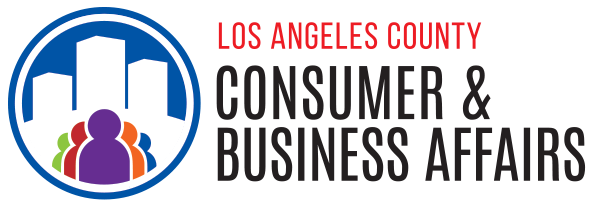
Before You Rent
Finding a place to rent can be a challenge. You will have a better chance of success if you plan ahead.
Before You Rent
Finding a place to rent can be a challenge. You will have a better chance of success if you plan ahead. Here are some important tips to remember before you rent:
Searching for a rental property
1. Set a budget: What can you afford? Experts recommend that you spend no more than 30 percent of your pre-tax income on rent.
2. Create a criteria list: What’s important to you? When searching for a rental unit, consider things such as distance from work/school, whether pets are allowed, laundry facilities, appliances included, crime levels, distance from grocery stores and public transportation, etc. You may not find a unit with everything you want, but it will help you narrow down your search.
3. Start the search: Once you’ve identified the area in which you want to live, it’s time to hit the pavement or the keyboard. Start your search online for listings to get a better idea of the area’s rates. Search newspaper classified ads, rental magazines, and bulletin boards at school or work. Drive around the neighborhood to see posted ads on buildings with vacancies.
See the rental units in person to evaluate their condition. Contact landlords to set up a date and time to get a tour of the apartment. If you’re interested in the rental, submit a rental application.
Watch out for rental listing scams. Prepaid Rental Listing Service companies (PRLS) sell lists of rental properties in exchange for an upfront fee. They must be licensed with the Bureau of Real Estate (www.bre.ca.gov)
Visiting and inspecting the property
1. Check for problems: As you walk through the apartment check for the following:
- Signs of leaks, mold, or infestation.
- Are there enough electrical outlets?
- Are there enough closets and cabinets in all rooms for storage?
- Do the walls or ceiling have cracks?
- Are appliances working properly?
- Look for broken fixtures, holes in walls or broken tile.
2. Ask questions: Here are some important ones to ask your potential landlord:
- How much is the monthly rent?
- Are utilities included in the rent?
- When is the rent due?
- How much is the security deposit?
- Does the unit come with a parking space?
- Are pets allowed?
- Do you have a management office onsite that responds to maintenance requests?
3. Make a good impression: Be polite and professional. You want to develop a good relationship with a prospective landlord. Remember, the landlord will be evaluating you just as much as you are evaluating them. They want to make sure that potential tenants are reliable, courteous, and easy to get along with. The landlord needs to be able to trust you with their rental property.
Rental applications and credit checks
Once you find an apartment you like, the next step is to fill out a rental application. This allows landlords to evaluate potential renters. The application will ask you for the following information: your place of employment, past employers, names and addresses of your current and past landlords, your Social Security number, driver’s license number and authorization for the landlord to run a background and credit check.
Checking your credit report
By law landlords are allowed to check potential tenants’ credit reports to screen for people who have not paid their bills on time. Delinquencies are a red flag for landlords and they are not likely to rent to someone with a bad credit history.
Review your own credit report before starting the search for an apartment. This gives you time to correct mistakes that might hurt you when trying to rent an apartment. You can check your credit report free at www.annualcreditreport.com.
Fees
Landlords are allowed to charge the potential tenant a fee to cover the cost of running a credit check. Keep in mind that these fees can quickly add up if you submit several credit applications.
References
You may be asked for a list of professional and/or personal references. Have them available and notify references that they may get a call from your prospective landlord.
Signing a lease or rental agreement
A lease is a contract between the landlord and the tenant that specifies the terms and conditions of the rental unit as well as locks in a rate for a specified amount of time (usually one year). In a month-to-month rental agreement, landlords can raise the rent whenever they wish as long as they give you proper notice.
Bring up any concerns you have before signing the contract. Also document the condition of the apartment by taking photographs. At this time you can also negotiate for better terms.
Read and understand the contract before you sign
Landlords and/or apartment managers may go through each page and summarize the document. However, take your time and read the entire contract. Any verbal agreements that were made should be stated in the contract. Any damages not corrected should be documented in the contract. Never sign a contract that has blank spaces. Never feel pressured into signing a contract you do not understand
What should be included in the lease:
- Cost of rent.
- Amount of the security deposit.
- What happens at the end of the lease.
- What happens if you terminate the lease early.
- Reasons a landlord can terminate your lease
- Where, how, and when is rent paid and what happens if it’s late.
- Which utilities are included.
- If subletting is allowed.
- If alterations are allowed.
- If pets are allowed, and if so, if you have to pay an extra fee.
- If you need renter’s insurance.
- If there is a policy about guest visitors.
Get a copy of the lease after you and the landlord have signed it.
County of Los Angeles Department of Consumer and Business Affairs. Last change: Dec. 1, 2013

